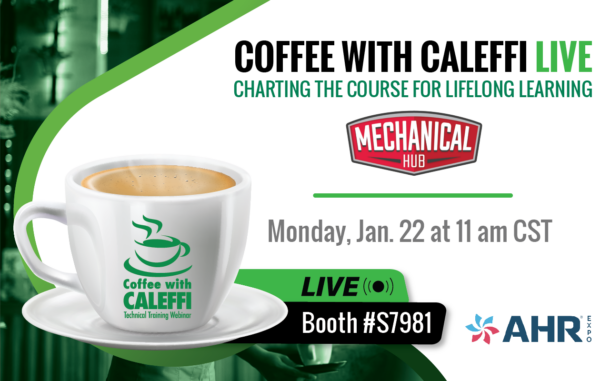I wrote this “10 Tips ..” story in the early months of 2020, and we all know what happened after that, right? I thought it would be fun some four years later to amend the list accordingly. So here goes … … with the turn of every calendar year comes the rush of industry trade Read more
Featured Articles

I wrote this “10 Tips ..” story in the early months of 2020, and we all know what happened after that, right? I thought it would be fun some four years later to amend the list accordingly. So here goes …
… with the turn of every calendar year comes the rush of industry trade shows. Next week we will be “traveling” to my hometown of Chicago for the AHR Show (January 22-24). Concurrently, during the same week, the WWETT show will be doing its thing in Indy (January 24-26). And if that wasn’t enough trade show hype for one week, the World of Concrete Show in Las Vegas is held, you guessed it, the same week (January 23-25).
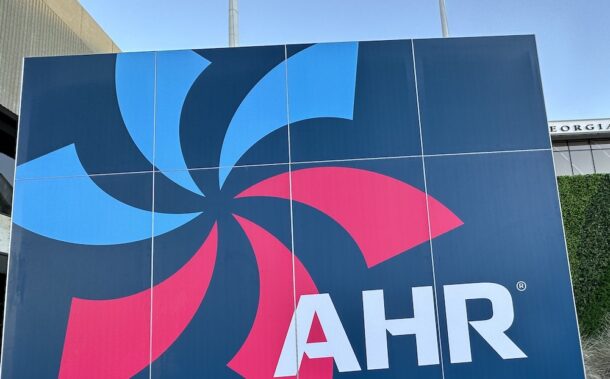
Following that, we will be in Las Vegas toward the end of February for the IBS/KBIS Show (February 27-29). All of these shows are worth the trip, depending your trade specialty, and what’s most important to you. Normally, I recommend all of these shows but this year is sort of an anomaly so the MH team had to pivot accordingly; I hope you have chosen so as well, my friends.
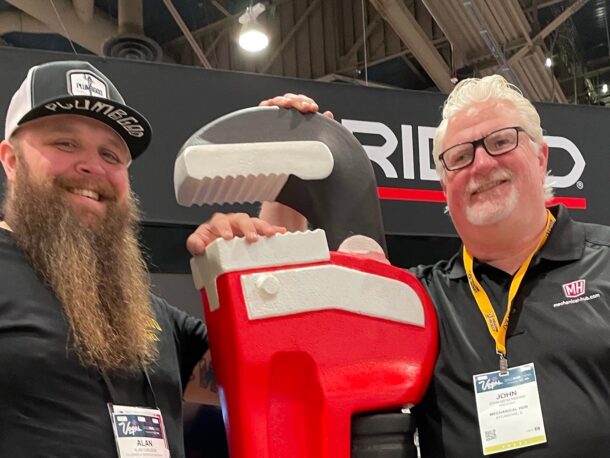
The purpose for those attending is to see, feel and test new products, learn and network with fellow attendees. Oh, did I mention hanging out with friends and this awesome community? When attending these trade shows it is best to have a plan. Having attended dozens of these show in the past, I have come up with some tips and strategies to having a successful show.
1. Map Out Your Plan — All of these shows have corresponding websites with a list of exhibitors and events. Map out your day so you are the most efficient with your time, energy and steps on the trade show floor. (ahrexpo.com & www.worldofconcrete.com & www.wwettshow.com & www.buildersshow.com) I can’t stress enough to download the appropriate trade show app and make a plan. It’s a must.
2. Wear Comfortable Shoes & Clothing — We all want to look good, and professional, but gone are the days of stuffy apparel. I’d rather feel comfortable and fresh at the end of the day than out of sorts, sweaty and my dogs barking.
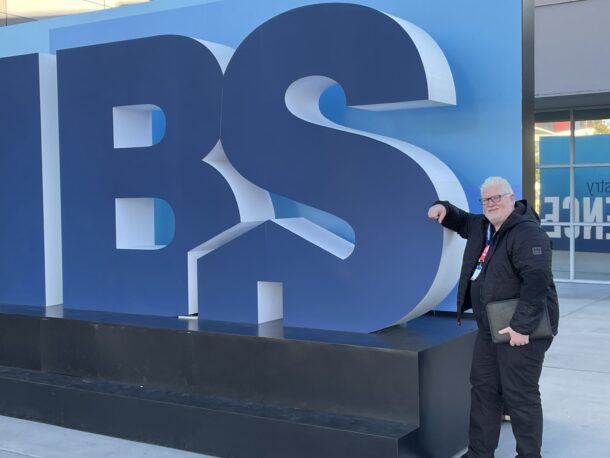
3. Give Yourself Enough Time — The stress of a trade show can be daunting in and of itself. Take as much time as you need to take a deep breath and move freely on the show floor. It’s always a good idea to come in the day or night before a show to make sure all is in order and registration for the show is set. If you are planning a night out, make sure you make any necessary reservations ahead of time.
4. Afterparty Over-Indulging — We all love to go out and enjoy ourselves, especially after a long day at a show. There are numerous manufacturer parties, dinners, soirees, etc. where one can relax and wind down. But staying out all night—and drinking—can be fun, and up to your discretion, but it isn’t advisable, especially if you intend to be at the show the following day. Nobody is impressed with the over-perspired, alcohol lingering on breath, bags under the eyes, headache pounding visit from on over-served attendee. Also, carry water and/or energy drinks and energy bars—or something to snack on—with you.
5. Plan Accordingly for Transportation — Most of the time at busy trade shows, transportation can, well, be a bitch, especially after a show. Keep this in mind as long taxi lines will form to and from the shows. Download your favorite rideshare app so you are locked and loaded.
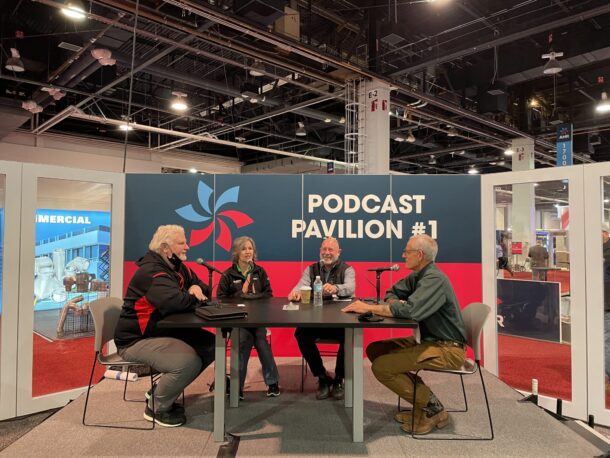
6. Visit the Podcast Pavilions — Everyone listens to podcasts, yes? Some of your favorite listens (Appetite for Construction & Make Trades Great Again, among others) will be recording “live” from the podcast pavilions located just in front of the North Hall to the right as your facing the entrance, behind registration and conveniently located by the beer garden. So grab a favorite beverage, relax and enjoy the p-casts!
7. Badges, We Don’t Need No Stinking’… — Well, make sure you have proper badges for the show. For example, attendee, exhibitor and press badges all provide different access and different access times. Make sure you understand the limitations of your particular given badge.
8. Follow-up with Contacts — Once the show is over, what it your end game? What better way to measure the results of a show personally than to document leads, follow up with new contacts, and were you satisfied with your expectations of information, contacts and overall impressions?
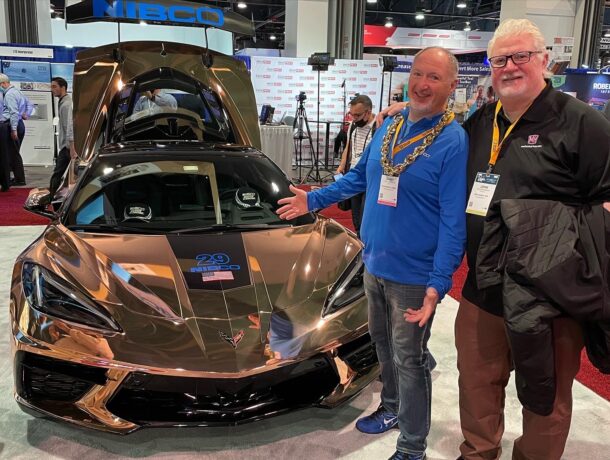
9. If Unable to Attend … — Be sure to follow your favorite social media outlets (@mechanicalhub & @plumbing_perspective for sure!) that may be attending and keep up to date on what’s going on from the show floor. First-of-the-year trade show events are when companies have big product announcements, launches and press briefings.
10. Cellular/WiFi Service — Most shows do not offer WiFi on the show floor, or if they do, it usually sucks. There are certain spots at different venues you may be able to sneak a signal, maybe. Make sure you have business cards on hand or be prepared to exchange info digitally through apps on your phone, so make sure your phone is charged or bring extra chargers!
Like deducing the age of a tree by counting its rings, I count age as it relates to how many AHR shows I have attended. I think I count 20 AHRs, 2021 notwithstanding. Good luck, have a great time, and have a great trade show experience!

REGISTER HERE: https://www.eventbrite.com/e/coffee-with-caleffi-live-charting-the-course-for-lifelong-learning-tickets-771633776397 How do you keep up-to-date on industry trends? John Mesenbrink and Tim Ward of Mechanical Hub will lead a conversation as they interview BIG NAME industry leaders to uncover how they Chart the Course for Lifelong Learning. The panel features John Siegenthaler, P.E., Eric Aune and Andy Mickelson – touted as the “voices of today’s contractor” – and Bob “Hot Rod” Rohr. You’ll Learn Read more
REGISTER HERE: https://www.eventbrite.com/e/coffee-with-caleffi-live-charting-the-course-for-lifelong-learning-tickets-771633776397
How do you keep up-to-date on industry trends? John Mesenbrink and Tim Ward of Mechanical Hub will lead a conversation as they interview BIG NAME industry leaders to uncover how they Chart the Course for Lifelong Learning.
The panel features John Siegenthaler, P.E., Eric Aune and Andy Mickelson – touted as the “voices of today’s contractor” – and Bob “Hot Rod” Rohr.
You’ll Learn:
- How to stay up to date on developing industry technology and trends.
- Formal, classroom training. Virtual training. Where are professionals “going” to learn?
- What is the impact of social media in lifelong learning?
Register to Win:
Register for free and join us to receive your limited edition Caleffi Gold Standard camo hat.
(Limit one per registrant, while supplies last.) Simply show your digital or printed ticket after the Coffee with Caleffi LIVE session.
All attendees of Caleffi LIVE events qualify for an opportunity to WIN one-of-a-kind custom sculpture by Bob “Hot Rod” Rohr. The drawing will take place on Wednesday, Jan. 24 at 11 am.
And, a full set of idronics technical journals signed by John Siegenthaler will be raffled during Charting the Course for Lifetime Learning event. Don’t miss out!
MCs:
John Mesenbrink and Tim Ward, Mechanical Hub
Panelists:
- John Siegenthaler, P.E., Appropriate Designs, NY
- Eric Aune, Aune Plumbing, MN & Mechanical Hub
- Andy Mickelson, Michelson Plumbing & Heating, MT
- Bob Rohr, a.k.a. “Hot Rod”, Caleffi North America, UT
Enjoy:
During Coffee with Caleffi LIVE, be sure to enjoy a specially prepared cappuccino, espresso or latte, made-to-order by our barista.
All this at Booth S7981 on Monday, Jan. 22 at 11 am CST. Register today!
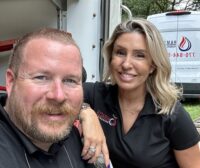
It’s that time of year again when people reflect on what they’re thankful for in the past year, and hope for a positive 2024. I cannot stress enough the job that Brent and Kathleen Ridley (@toolpros & @toolwife) do with Miracle Mechanical, a charitable organization dedicated to uplifting families in need, one at-no-cost-HVAC/plumbing repair at Read more
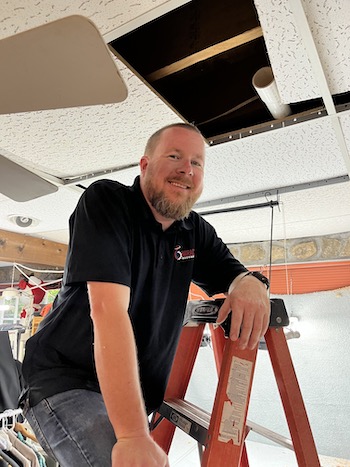 It’s that time of year again when people reflect on what they’re thankful for in the past year, and hope for a positive 2024. I cannot stress enough the job that Brent and Kathleen Ridley (@toolpros & @toolwife) do with Miracle Mechanical, a charitable organization dedicated to uplifting families in need, one at-no-cost-HVAC/plumbing repair at a time. “Honestly, it’s hard to put into words,” says Brent Ridley. “Seeing and feeling the gratitude from homeowners is an incredible feeling, and something that never gets old.”
It’s that time of year again when people reflect on what they’re thankful for in the past year, and hope for a positive 2024. I cannot stress enough the job that Brent and Kathleen Ridley (@toolpros & @toolwife) do with Miracle Mechanical, a charitable organization dedicated to uplifting families in need, one at-no-cost-HVAC/plumbing repair at a time. “Honestly, it’s hard to put into words,” says Brent Ridley. “Seeing and feeling the gratitude from homeowners is an incredible feeling, and something that never gets old.”
Tool Pros began as tool review brand, as the brand grew and relationships with tool manufacturers were made, Ridley felt a need to use his platform for more. “Free tools and trips are great but I thought to myself. ‘let’s actually do something that matters.’”
Combined with his platform and what he knew best—HVAC /plumbing—Miracle Mechanical was born. Shortly after the concept, Ridley reached out to his contacts at RIDGID to gauge interest. “Thankfully they loved the idea and wanted to sponsor the very first project. Two months later we completed our first project, and the rest is history,” says Ridley.
Officially, the primary facilitators of Miracle Mechanical consist of Brent and his wife Kathleen. They also bring in a production crew of three to four people, and their team of HVAC / plumbing contractors—usually a 4-man crew—for a project day.
Ridley says that the goal is always to complete as many projects as possible; however, they are averaging four to five projects per year. In fact, Miracle Mechanical just completed a project this past October with Sharkbite.
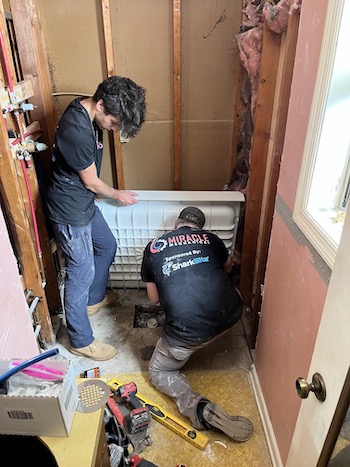 And they have partnered with RIDGID for the next project taking place in early 2024. In the past, Miracle has teamed up with the AHR Expo but nothing for 2024. “We look forward to partnering with AHR for their work force development program in the future,” says Ridley.
And they have partnered with RIDGID for the next project taking place in early 2024. In the past, Miracle has teamed up with the AHR Expo but nothing for 2024. “We look forward to partnering with AHR for their work force development program in the future,” says Ridley.
But between working as an HVAC contractor, content creator, Miracle Mechanical facilitator, podcaster and Lowe’s Santa, finding time to take a deep breath can be difficult. “Sure, it can feel overwhelming at times,” says Ridley. “Thankfully, I have my wife who is a full-time manager and coordinator for the Tool Pros brand and Miracle Mechanical. Her dedication to the brand allows me to focus on my HVAC/plumbing business (H & M Services, Inc.), as well as other creative outlets—without dropping any balls in the process.”
The Miracle Mechanical concept is such a good one, and one that I know Ridley hopes he can provide nationally. At this time, logistics and funding for national projects have been a huge obstacle, but one that I’m confident we’ll overcome in the next couple of years,” says Ridley.
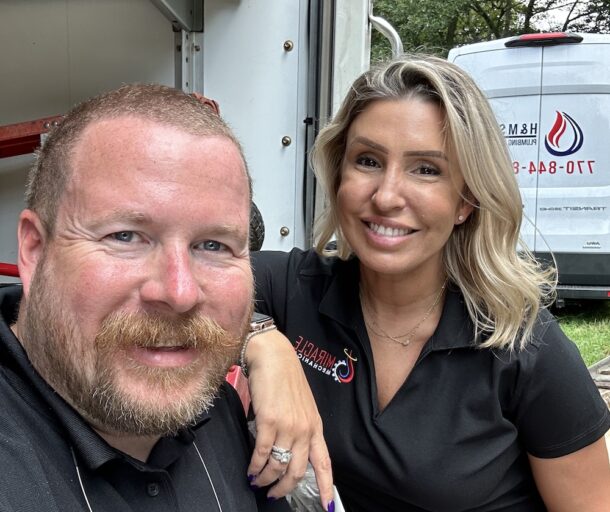
More About Brent Ridley
Ridley started into the trades right out high school in 2004. His girlfriend’s father, at the time, owned an HVAC business, and he started the summer after senior year doing commercial duct work and hated it. It was only until he found service and repair that he fell in love with the HVAC industry. “From there, I have always strived to make it more than just a ‘Job,’ but a lifestyle. If you want to get ahead in life, you can’t clock out at 5 pm.”
In the earier days before social media, Ridley wrote long-form, trade-specific tool reviews on a site called HVACTalk.com, which no longer exists. In 2017, Ridley started his successful Tool Pros Podcast. “Not long after, the social media portion of the brand quickly outgrew the podcast, leading to many opportunities that I am very grateful for, like Miracle Mechanical,” says Ridley.

Huge Commercial Heating System Retrofit! https://youtu.be/nLWTEj_qcAE?si=fAArm6-16X_O0bW5 The Hub is on the road in Missoula, Montana for five days to pipe up 1.2M Btu’s of hot water heating for a 45+n unit condo property. The Hub’s Eric Aune joins the Mickelson Plumbing crew for an intense but fun project in this episode of our ‘Hub On Read more
Huge Commercial Heating System Retrofit!
The Hub is on the road in Missoula, Montana for five days to pipe up 1.2M Btu’s of hot water heating for a 45+n unit condo property.
The Hub’s Eric Aune joins the Mickelson Plumbing crew for an intense but fun project in this episode of our ‘Hub On The Road’ series.
In this video we showcase the reliable MegaPress IPS fitting system. We rely on the RIDGID propress tools and press booster for assembly of the piping connected to the Viessmann Vitocrossal 200 commercial hot water boilers.
Thanks to our partners for making this project possible. It’s with their support we were able to produce this educational video showcasing some world-class plumbing & hvac products and tools.
Please checkout our partners here:
Viega LLC Ridge Tool Company (RIDGID Tools) Viessmann Manufacturing

In today’s ever-changing business landscape, strengthening the contractor/wholesaler channel is critical to survival. A recent general session at PHCC CONNECT drilled deep into the conversation. “How does my supplier make me look like a rock star?” asked Dan Callies, President, Oak Creek Plumbing, Inc., Oak Creek, Wis., during the “Collaborative Connections: Strengthening Supplier-Contractor Relationships for Read more
In today’s ever-changing business landscape, strengthening the contractor/wholesaler channel is critical to survival. A recent general session at PHCC CONNECT drilled deep into the conversation.
“How does my supplier make me look like a rock star?” asked Dan Callies, President, Oak Creek Plumbing, Inc., Oak Creek, Wis., during the “Collaborative Connections: Strengthening Supplier-Contractor Relationships for Success” general session at the PHCC Connect show last month in Cleveland. Joining Dan on stage was an all-star cast featuring emcee Robert Grim, Senior Vice President, Global Sales, InSinkErator, Mount Pleasant, Wis.; Scott Robertson, President, Robertson Heating Supply Co., Alliance, Ohio; Kathryn Poehling-Seymour, President and CEO, First Supply LLC, Madison, Wis.; and Jason Pritchard, Co-Founder, PriCor Technologies, Seattle.
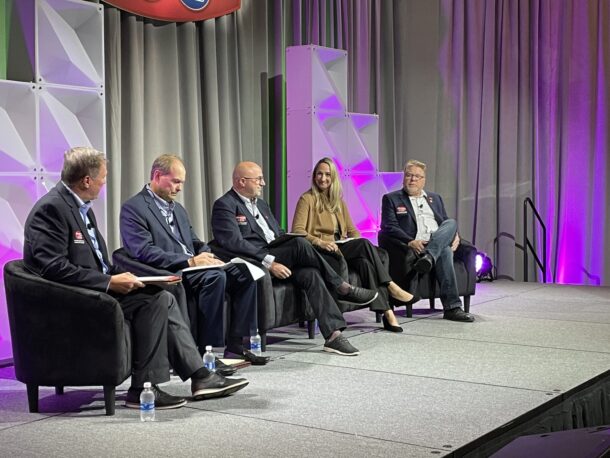
From l to r: Robert Grim, Senior Vice President, Global Sales, InSinkErator, Mount Pleasant, Wis.; Scott Robertson, President, Robertson Heating Supply Co., Alliance, Ohio; Kathryn Poehling-Seymour, President and CEO, First Supply LLC, Madison, Wis.; and Jason Pritchard, Co-Founder, PriCor Technologies, Seattle.
That’s the million-dollar question, right? How does the supplier/contractor relationship make each other better at his/her jobs, and contribute to the overall company mission? Throw in the manufacturer here too, for that matter. Some of the fundamental tenets for strengthening that relationship—that were discussed at the general session—included collaboration, value distribution services, availability, technology and training, and expectations.
Can’t We Just Get Along?
InSinkErator’s Grim asked about the value of working together, and Poehling-Seymour stressed that collaboration is critical in this relationship. “We must understand the pain points and what is working and what isn’t.”
And with that comes better communication. “We are in a relationship industry where communication is imperative,” said Pritchard. If that means paying a bit more for that stronger relationship, then so be it, intimated Pritchard.
Callies echoed this but stressed right communication over more communication. The common thought is “wide equals pricing and deep equals relationships,” said Callies.
So, let’s go deep as an industry. When asked what the landscape is going to look like in five-to-10 years for the contractor/wholesaler/manufacturer, people, processes and services matter. Through trust and preferences, “Relationships are going to matter more,” said Pritchard.
What about expectations? “We want to be around for another 10-20 years,” said Robertson. “We want to see contractor loyalty in the channel,” continued Robertson. “And that means a loyalty to the wholesaler in your particular market.”
Stock Market
Let’s not avoid the 800-lb. gorilla in the room. With contractor loyalty, comes availability and pricing. For Robertson, inventory presence is critical so much so that Robertson Supply holds inventory for approximately 100-125 days. “Listen, we don’t make or install anything so we better be damn good at inventory management,” said Robertson.
Value distribution services ties right in here, “It’s about right product, right time, right price,” said Poehling-Seymour. “Be that added value family.”
Tech Relevant
It’s imperative for these brick-and-mortar supply houses to stay on top of the latest trends and technology. “The key to survival is to stay progressive and current,” said Robertson. Upon further self-reflection, “how do we make it easier to find product?” asked Robertson. “This includes being totally integrated with our contractor partners and researching and developing a technology that contractors will use.”
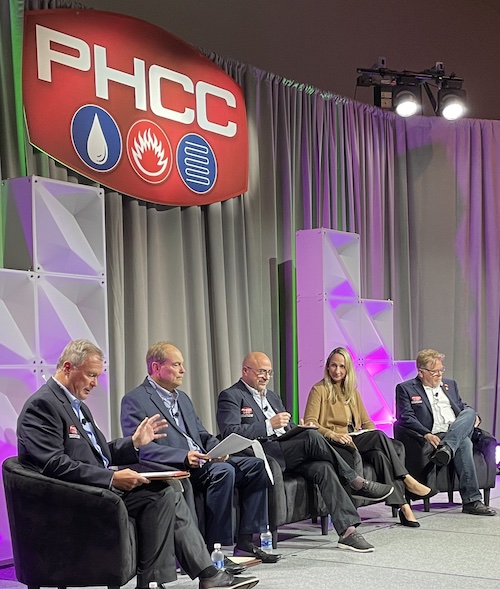 Poehling-Seymour added that First Supply LLC institutes “customer councils” to continuously get a pulse of the customer. “We try to make sense of the noise,” said Poehling- Seymour. “Where is critical mass in that noise so we can make the right decisions?”
Poehling-Seymour added that First Supply LLC institutes “customer councils” to continuously get a pulse of the customer. “We try to make sense of the noise,” said Poehling- Seymour. “Where is critical mass in that noise so we can make the right decisions?”
Unless you’ve been riding under a technology rock, Artificial Intelligence (AI) has dominated the talk in most every corner of the tech universe, and it has crept into the PHVAC industry as well. While artificial intelligence, in and of itself, can sound scary and intimidating, according to Poehling-Seymour, “AI has real application in the industry purchasing and predictability.”
For suppliers, it’s imperative to keep all “moving-forward” options available, as Robertson suggests. This includes, and nothing new and earth shattering in our industry, maximizing e-commerce when necessary. “E-commerce presents the right tools at your fingertips,” said Poehling-Seymour. Robertson adds that for his company, online ordering represents 20% volume. Other tech advancements, which included the use of QR codes to streamline processes and online training, were mentioned.
Training Room
InSinkErator’s Grim offered that in today’s business landscape, there is more need for training.
In fact, says Grim, PHCC members ask for training and education now more than ever. “With evolution and advancement comes training and education,” said Callies. Doubling down on this, Poehling-Seymour stated that First Supply opened a training center and offers a variety of training through streaming content.
Callies suggests that people still are the cogs in the wheel that makes this industry run, “Digital when you can, verbal when you must.” Pritchard and Poehler-Seymour agree, saying that people and the process are key through direct communication, and that includes all members of the channel—contractors, manufacturers, all the way down to the inside and outside sales, drivers, dispatchers, etc. within each organization.
So, let’s go back to the original question: How do we all make each other look like rock stars? Consuming all of the above, and, quite simply, “look for successes and build on them,” said Callies.
This article originally ran in PHCC’s Solutions magazine. You can learn more about the Plumbing-Heating-Cooling-Contractors (PHCC) Association at www.phccweb.org.

